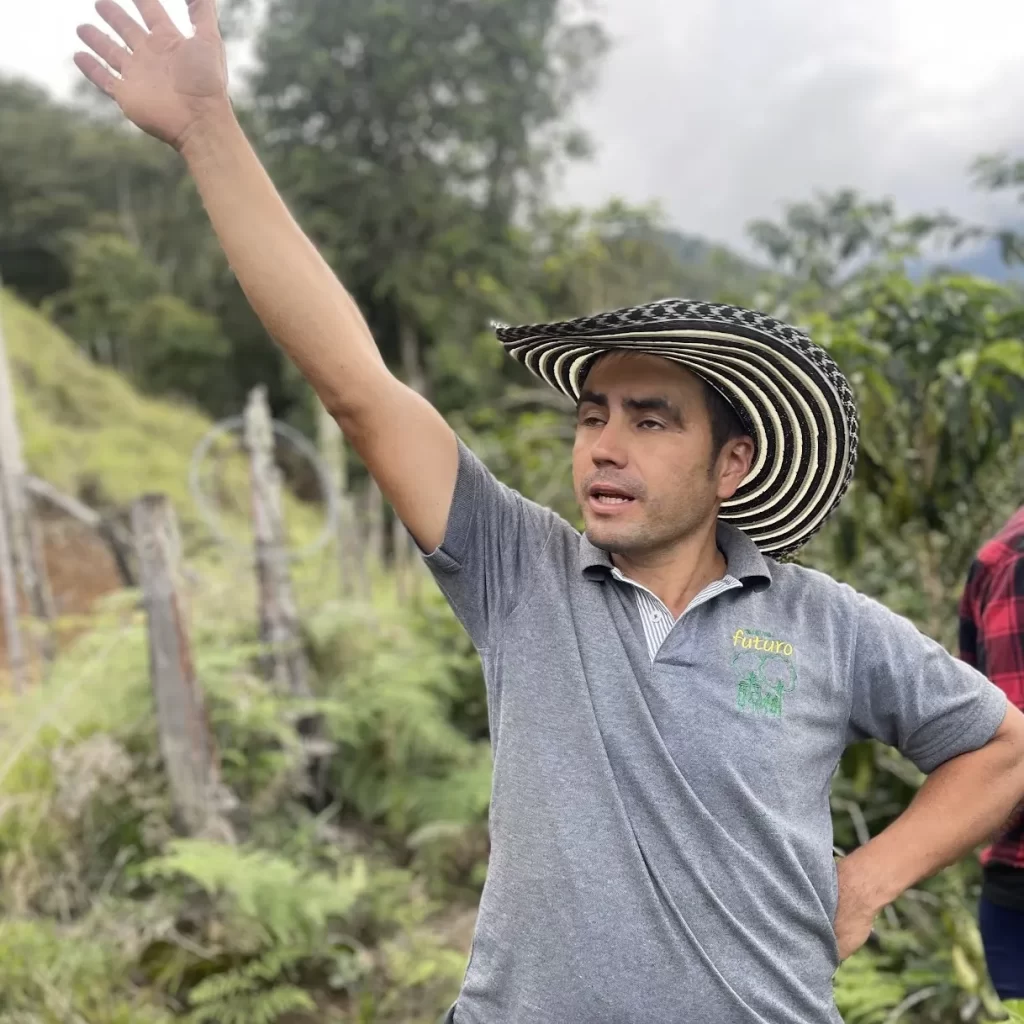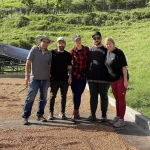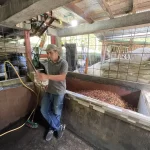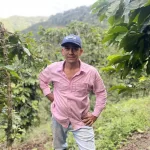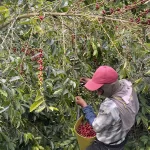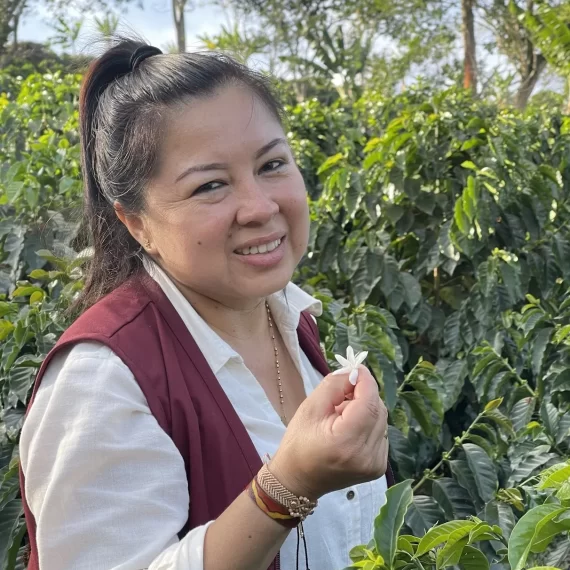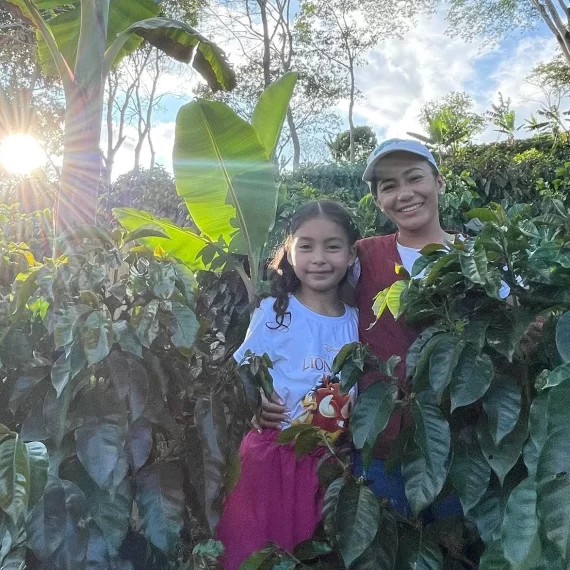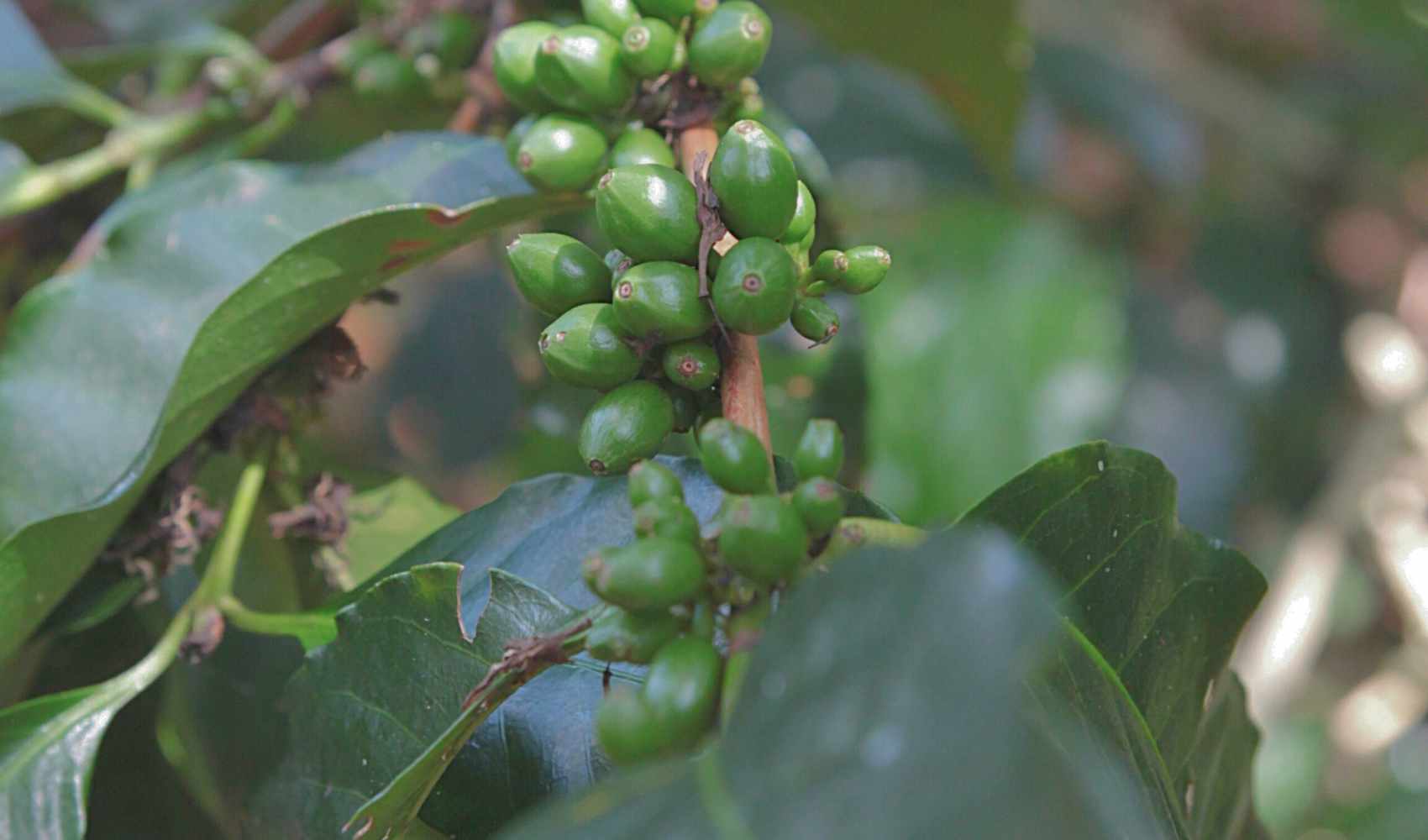
Alfredo Castaño
Alfredo Castaño Torres is a third-generation coffee producer and a certified Q Processing Level 2 expert. Born and raised in the municipality of Santuario, Risaralda, Alfredo grew up on coffee farms managed by his father. From a young age, he learned the traditional ways of coffee farming, working alongside his father and absorbing the knowledge and skills that would shape his future.
“I am a coffee farmer because it’s what I was taught to be. It’s the legacy my father passed down to me. But now, as a processor and someone who understands specialty coffee, my passion has grown even more. I see so much potential for the new generations—not just as coffee pickers but as processors, cuppers, baristas. I believe this is the future for young people, a way to bring them back to the countryside and keep them connected to the land.”
Alfredo has been fully dedicated to coffee processing for the past two years and is now one of the main suppliers of high-quality coffee to the Asocafé Tatamá association. He specializes in natural, honey, and washed processes with extended fermentation, producing microlots of exceptional quality. His journey into specialty coffee began in 2012 when he joined Asocafé Tatamá without any prior knowledge of specialty coffee. Over time, with the support of various institutions and training programs, Alfredo developed a deep interest in processing and earned his Q Processing Level 2 certification in 2018.
About the coffee
El Recinto farm spans 11 hectares, of which only 2.5 hectares are cultivated with coffee. The remaining land is a natural reserve dedicated to preserving the local flora and fauna. The farm is home to a variety of coffee plants, including Castillo, Geisha, Sudan Rume, and Supremo. Alfredo and his family also prioritize the conservation of their water sources, recognizing them as one of the farm’s greatest assets.
The farm’s history is deeply rooted in Alfredo’s family. After years of managing coffee farms for others, Alfredo’s father was able to purchase his own piece of land. Initially, the land was overgrown and uncultivated, but through hard work and dedication, the family transformed it into a thriving coffee farm. They planted their first coffee trees, built their home, and named the farm “El Recinto,” symbolizing a place of belonging and heritage.
Today, Alfredo manages the farm on his own, as his parents have retired to the town due to health reasons. He is the fourth of five siblings, but only he and his eldest brother, who owns a neighboring farm called El Futuro, continue the family’s coffee tradition. Alfredo has been working on the farm since the age of 12, balancing his education with his responsibilities in the coffee fields. Now 38 years old, his passion for coffee remains as strong as ever.
“Every day, I learn something new about coffee. It’s a never-ending journey of knowledge and growth. My father’s teachings and the legacy of our family farm inspire me to keep pushing forward, to honor our traditions while embracing innovation in specialty coffee.”
This lot is of the Caturra variety, which was processed by the washed method. After harvesting, the coffee was washed and floated to wash away dirt and bad beans. The coffee was then de-pulped and left to ferment for 15 days in barrels.
This lot is of the Castillo variety, which the farmers processed using the semi-washed, or honey method. After harvesting, the coffee was washed, floating to wash away dirt and bad beans. The coffee was fermented in whole cherries for 8 days and then de-husked for a further 8 days. Fermentation took place in sealed plastic barrels.


